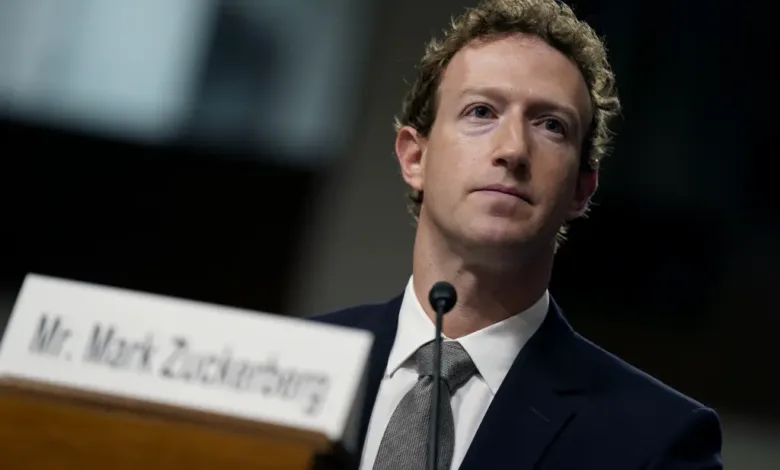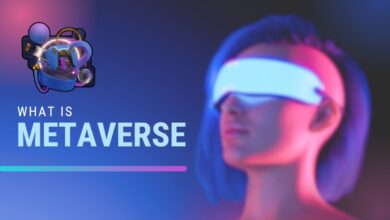Meta’s Zuckerberg Cleared of Liability in Lawsuits Over Social Media Harm to Children

In a historic ruling, a U.S. federal judge has decided that Mark Zuckerberg, the CEO of Meta Platforms, is not held personally accountable for claims that the company’s social media platforms—such as Facebook and Instagram—contribute to mental health problems in kids and teenagers. In the face of mounting criticism regarding social media’s effects on younger users, this decision represents a major success for the internet behemoth.
Table of Contents
The Court’s Decision: A Shield for Zuckerberg
The ruling, which was made public earlier this week, threw out many lawsuits that attempted to hold Zuckerberg directly liable for the alleged damages that Meta’s platforms caused. These cases alleged that Meta’s platform design and algorithms were responsible for children’s mental health problems, including anxiety, depression, and social media addiction.
However, the US District Court Judge Michael Fitzgerald determined that Zuckerberg couldn’t be held personally liable for the business’s policies as well as product designs. According to the judge, “there is inadequate proof to hold Mr. Zuckerberg individually responsible under current laws, even though the plaintiffs’ concerns regarding social media’s impact on psychological wellness are serious.”
This decision essentially protects Zuckerberg from being singled out in these cases, which are a part of a larger legal battle to make social media corporations responsible for the welfare of its younger users.
The Allegations Against Meta
The complaints, which were brought by advocacy organizations and parents, contend that Meta’s platforms are purposefully made to be addictive and promote material that may be harmful to kids’ mental health. According to these concerns, Meta employs advanced algorithms to optimize user engagement, which frequently comes at the expense of the well-being of young users.
In 2021, Frances Haugen, a former employee of Facebook, published confidential data that showed the business knew Instagram might have negative effects on adolescent girls, such as rising rates of anxiety, despair, and body image problems. The plaintiffs contend that Meta is obligated to safeguard its youngest users as a result of this knowledge.
Meta’s Defense: Protecting Innovation and Free Speech
Meta’s legal team responded to the claims by claiming that the company is covered by the Communications Decency Act’s Section 230, which exempts online platforms from responsibility for information that third parties upload. Meta says it works diligently to make its services secure for young users, noting programs such as “Take a Break” reminders and tighter parental controls.
“While we are committed to ensuring the safety of our users, particularly young people, holding individuals like Mark Zuckerberg liable for company policies would set a dangerous precedent that stifles innovation,” a representative for Meta told me.
What This Means for Social Media Companies
The decision is expected to set a strong precedent for future litigation against social media corporations and their executives. The possibility of holding internet leaders directly responsible for the detrimental effects of their initiatives on the public’s wellness may have arisen if these lawsuits had been successful.
Legal experts say that although this decision is a victory for Zuckerberg and Meta, litigants may still have hope. “The ruling emphasizes the necessity of revising laws to handle the intricacies of social media’s influence on society,” stated cyber law specialist Jessica Goldman.
The decision may prompt Congress to reconsider Section 230 safeguards as calls for greater oversight of online social networking companies become louder. Regulators in the United States and Europe have started to press for stronger regulations on internet firms in order to protect user privacy as well as mental health.
Impact on Meta’s Business & Reputation
Zuckerberg is relieved by the court’s ruling, but Meta’s recent reputational harm is not significantly enhanced. The corporation has experienced growing criticism for emphasizing profit over customer well-being, particularly among younger users.
Investor trust in Meta’s ability to overcome legal obstacles was demonstrated by the tiny increase in the company’s shares after the revelation, despite these difficulties. However, the firm is still being investigated by state attorneys general and faces multiple class-action lawsuits.
What’s Next? Potential Legislative Changes on the Horizon
The conclusion of this judicial struggle highlights the critical need for new legislation designed for the digital age. With the impending presidential election in the United States, IT regulation is expected to be a hotly debated issue. Both political parties are urging more stringent regulation of social media sites in order to safeguard children and teenagers.

Stricter rules, including safeguards against harm to children, have already been placed on tech corporations in Europe under the Digital Services Act (DSA). Similar legislation may soon be passed in the United States due to growing pressure from advocacy organizations, educators, and parents.
A Call for Responsible Social Media
The argument about how social media affects mental health is still very much alive and well. While Meta defends its policies and introduces additional safety features, some claim that these efforts are insufficient. The way social media algorithms work, especially how they impact young users, is being made more transparent by advocacy groups.
The desire for reform is also being voiced more and more by parents. Parent Sarah Thompson, one of the case’s plaintiffs, stated that families cannot bear the entire burden of keeping an eye on their kids’ internet activity. “We need tech companies to be proactive in creating a safer environment for our kids.”
The Battle for Social Media Accountability Continues
Even after this court ruling, the bigger question still stands: who is responsible for social media’s negative effects on society? This time, Zuckerberg has avoided personal liability, but the law is changing. Social media businesses may soon be subject to more stringent inspection due to mounting regulatory pressure and the potential for new legislation.
Although Meta has achieved a notable legal win for the time being, the fight over social media’s impact on psychological wellness is still ongoing. The next several years will be critical in deciding how social media regulation develops as the discussion about digital responsibility expands both domestically and internationally.
People also Reading
Elon Musk’s Influence with Trump: How His Power Could Propel Tesla, SpaceX, and Beyond
After SpaceX’s Requests, Taiwanese Suppliers Move Manufacturing Abroad to Meet Demand
French Families Sue TikTok Alleging Failure to Remove Harmful Content




